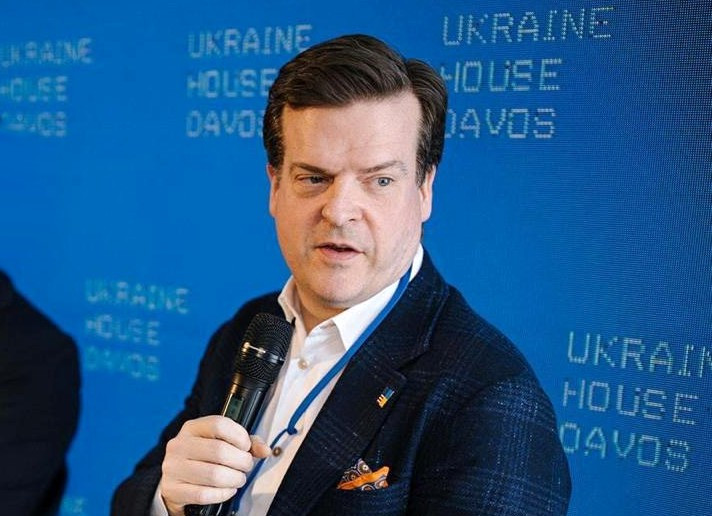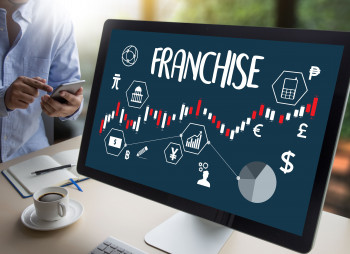What is the current total value of Ukrainian assets in the portfolio of Argentem Creek Partners (ACP)? How did it change during the war? Please list your main assets and their type: debt (private or public?), equity investments?
A private company cannot fully disclose the structure of its portfolio. Nevertheless, over the past 6-7 years we have invested more than $600 million in Ukrainian assets. This includes investments and participation in the restructuring of companies such as Interpipe, Lemtrans, the Mriya agro holding and other companies in the agricultural sector. Let me summarize: first in Ukraine we dealt with complex restructurings, and then we began investing money in projects that were far from default. That is, we invested in both the debt and equity of the companies that we can help solve more complex business problems. Our goal is not only to invest in the context of public markets, but also to make private investments.
I think that our next stage in Ukraine is investing in equity capital, and for ACP, the presence of good governance practices among companies is of great importance. Therefore, problems like the one taking place in Odessa (we are talking about GNT case - ed.) are possible only when the management of Ukrainian companies decides not to be transparent in operations. As a result, inventory worth $130 million disappeared from the warehouse. In such situations, we make efforts to legally enforce and take control of the asset (take enforcement actions). Although, the initial idea of -- cooperation with GNT was good; partnership with Ukrainian entrepreneurs and development of the company itself. After solving their business problems, ACP planned to improve the quality of enterprise management, including through a strengthened board of directors, however that time it didn’t work out.
Considering we have already touched on the topic of GNT (the Odessa terminal), have you already taken over the property or it is under the control of the bankruptcy manager?
The company is currently going through bankruptcy proceedings. ACP has been winning in both Ukrainian and international courts, and the terminal is supervised by the bankruptcy manager appointed by the court, and proceedings are underway. The bankruptcy manager is currently working to obtain access to documentation and all information. He is experiencing very serious resistance, however.
How has your portfolio of Ukrainian assets changed over the two years of war?
Of course, at the beginning of the war we put business in Ukraine on pause. Then the story with the owners of GNT began, and we completely focused on it. We are already starting to think about the next steps - that is, about investing in Ukraine. Of course, it is better to invest money after the war, but there are already many promising companies in the country. Moreover, after the end of the war, large-scale reconstruction will begin, so we need to invest now. I think that this year we will begin to make new investments in the real sector of the Ukrainian economy.
To complete the case with the Odessa terminal: are you satisfied with the work of the Ukrainian judicial system?
As I mentioned previously, we have made good progress winning in Court both in Ukraine and abroad. Our experience is that the 'upper' level courts have upheld the rule of law. We have experienced though a series of challenges with some local courts and authorities which significantly delayed the legal proceedings. What I would say is that strengthening the rule of law, ensuring application of law across the board will be fundamental for Ukraine to continue to attract private investors. There is the political will to do so and I am looking forward to seeing more reforms on that front.
A question for you as an investor: which sectors of the Ukrainian economy are of the greatest interest to you? When is the best time to invest? Is there regional preference?
Of course, everything depends on the company itself and the external situation (this is especially important in the energy business). If you invest in enterprises located closer to the front line, you need to own additional tools - insurance, etc. It is most likely that we will invest in companies located in the center and west of Ukraine, since it is quite difficult to convince our investors to send capital to a state suffering from war. When? ACP is already working on a list of enterprises where it can invest. I think it will happen this year.
You talk about investing in DTEK, Interpipe and other companies, but you mentioned buying Eurobonds. In Ukraine, this is not perceived as an investment in a company, but as debt financing and assistance in debt restructuring.
Look: before the restructuring, Interpipe's EBITDA was $50 million. Now - more than $200 million plus access to a variety of credit lines. In my opinion, this is still an investment that freed up the company’s hands and gave it the opportunity to work calmly.
The Memorandum with the World Monetary Fund worsened the macroeconomic forecast. Based on the document, the risk of continuing the war in 2025 has increased significantly. What macroeconomic points are you tracking? Do your investments depend on them or more on the situation in the companies themselves?
This depends both on the enterprises themselves and on the results of negotiations with our investors (old and new). If the company is in good condition, we can convince investors to “enter” a particular project. This is a more complex process than regular business. However, we have experience and know how to work in Ukraine and other countries and we want to be a company that, through investments, supports and helps Ukraine as much as possible.
The beginning of Ukraine's negotiations on joining the EU. How important is this step for investors?
For both them and us, Ukraine’s accession to the EU opens up significant business prospects. This is the right vector, but now it is difficult to make specific decisions with an eye to a process that can last many years. The EU is important. That is the basis. However, it is not the key point at the moment.
One of the topics that was raised during the Ukraine Recovery Conference in Berlin was insurance and the work of MIGA (Multilateral Investment Guarantee Agency), a member of the World Bank Group. Do you see an opportunity to insure your investments in Ukrainian enterprises?
Yes, we can insure some of our assets in Ukraine.
How do you assess competition in the investment market? Are investors jostling?
You know, ACP does not see itself as a competitor to, for example, Dragon Capital or Horizon Capital. This is a large market, and each actor views the situation differently. We sometimes compete, but this happens very rarely. On the contrary, we have good relations with them: at times we support them, and they support us.
Maybe your key competitor would be VR Capital? Especially in the area of debt and distressed assets.
Yes, sometimes. At the same time, I would like to emphasize that there are still not many investors who work on the Ukrainian market. That’s why we all are more partners than competitors.
Are you taking part in negotiations on restructuring the debts of Ukrainian state-owned companies?
No, we are not participating. We focus exclusively on the corporate segment (companies at the level of DTEK, Kernel and below). The country needs companies that can make investments. And if they pay taxes and practice good corporate governance, then why not? Ukrainian companies should be able to receive investments.
A question regarding investment structuring. Are you ready to “enter” as a fund or be part of some other fund, maybe in cooperation with other international financial organizations?
We usually work independently, but that doesn’t mean we are not open to partnerships.
And yet: given the military specifics of the country, will you create some kind of separate fund for Ukraine?
All options are on the table and they are being discussed. There is no final decision yet.






